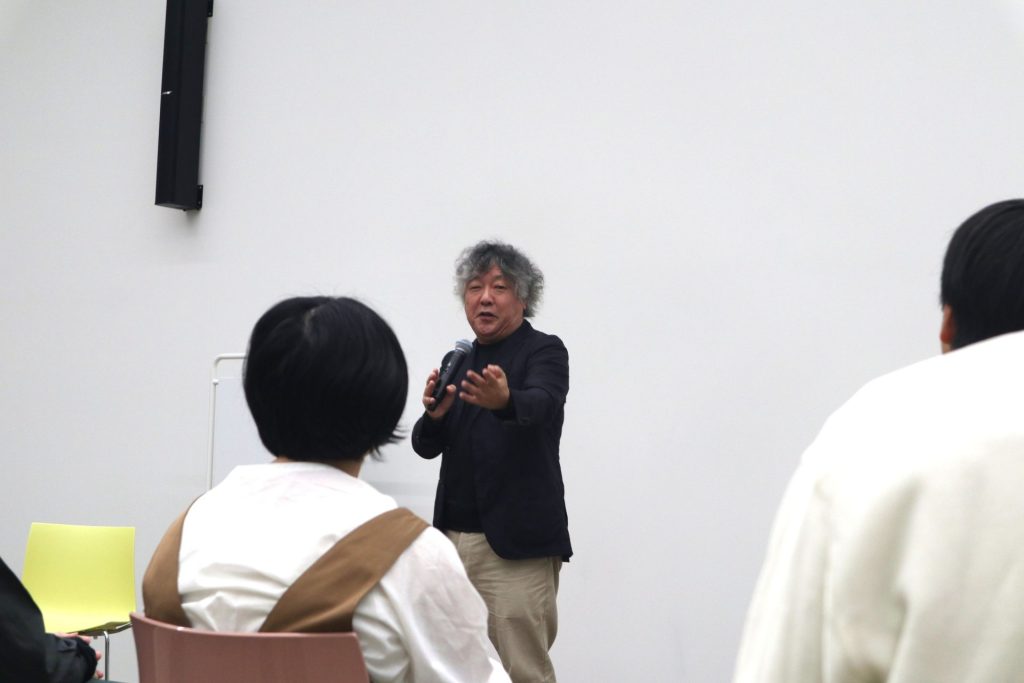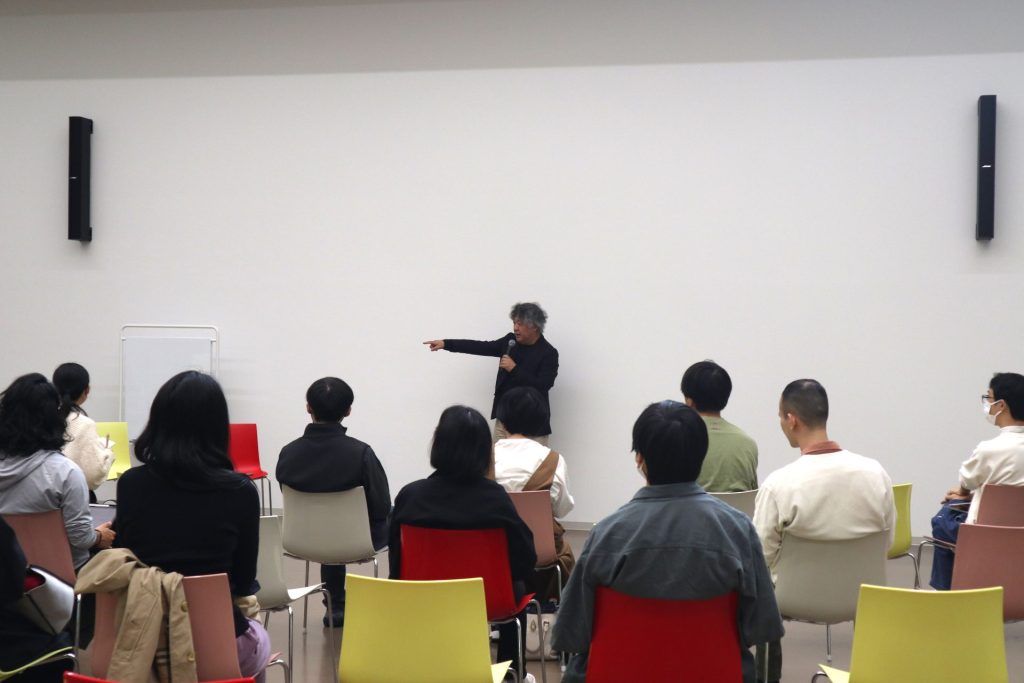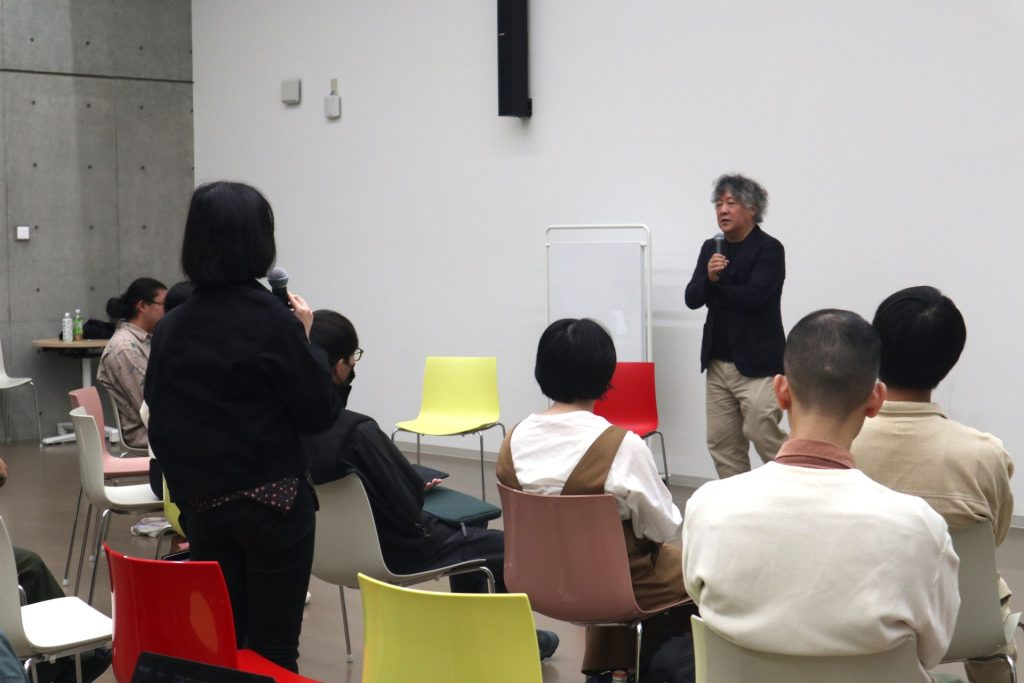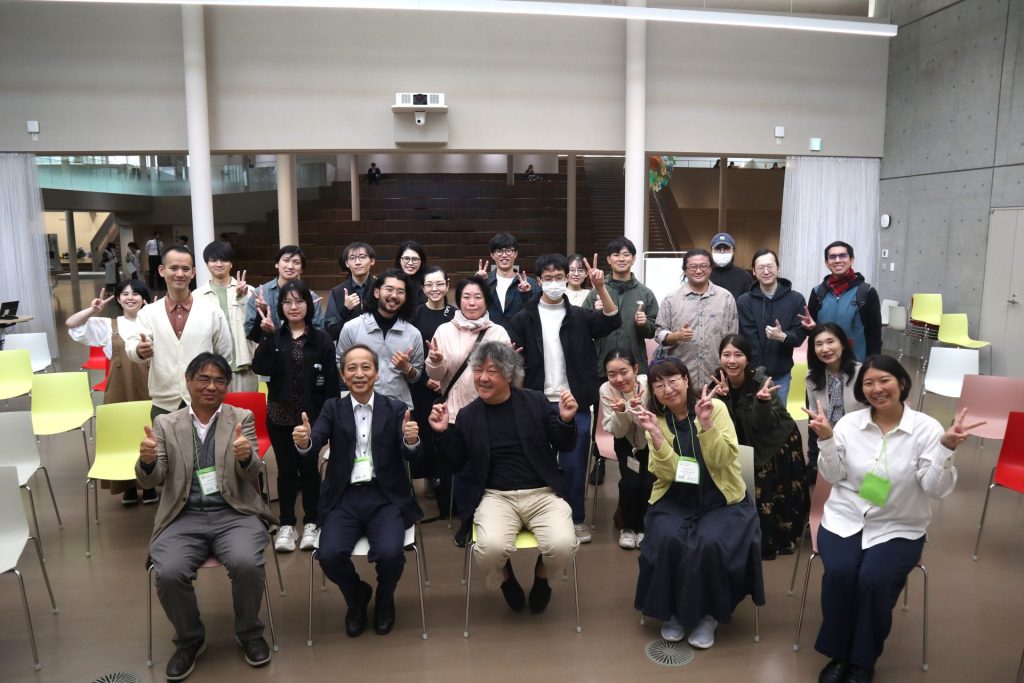博士機構活動報告vol.6/ DEC Activity Report vol.6
東海国立大学機構メイク・ニュー・スタンダード次世代研究事業特別企画講演会
「茂木健一郎先生と考えるAI活用最前線」開催報告
2025年10月31日(金)、名古屋大学 ComoNe LOAM HALL にて、博士課程教育推進機構主催による特別企画講演会「茂木健一郎先生と考えるAI活用最前線」を開催しました。
本企画は、東海国立大学機構 MNS 次世代研究事業の採択大学院生を中心に、名古屋大学・岐阜大学の大学院生を対象に実施され、対面とオンラインをあわせて多数の参加者が集いました。
講演では、ChatGPTの登場が社会に与えた衝撃を「ChatGPTモーメント」と表現し、AIの進化とその背景について語られました。大規模言語モデル(LLM)は驚くほど高い性能を発揮しているものの、「なぜこれほどまでにうまく機能するのか、実はまだ誰も明確に説明できていない」と指摘されました。内部の仕組みを解明しようとする研究も進む中で、その複雑さこそが、現代AI研究の核心的な課題であると述べられました。
また、AIが人間の価値観と異なる判断をする可能性を指摘し、「人間とAIの方向をどうそろえるか(AIアライメント)」がこれからの大きな課題だと強調されました。さらに、AIを「楽をするための道具」ではなく、「自分の理解を深め、考える力を伸ばす相棒」として活用することの大切さを、英文校正や将棋の例を挙げて説明されました。AIに任せきりにせず、自分の頭で考えて取り入れる姿勢が真の学びにつながると語られました。最後に、「Posthumanism」は人間をAIに置き換える発想であり、「Transhumanism」は人間を中心にAIと共に知を拡張していく発想であると説明し、「AIで楽をするのではなく、AIで賢くなる」ことを学生たちに呼びかけて講演を締めくくられました。
ディスカッションでは、学生から「シンギュラリティの話は昔からあったのに、なぜ今まで本格的に議論されてこず、今なお課題なのか」「人間が理解できないようなレベルの判断をするAIが現れるという話とExplainable AI(説明可能なAI)の関係はどうなるのか」「そもそも隣にいる存在が人間でなくてもよいのでは」といった率直な質問が出されました。これらをきっかけに、AIの倫理や説明可能性、社会との関係について活発な意見交換が行われました。その議論はやがて「人間らしさとは何か」「感動や共鳴は“生きている”存在だからこそ生まれるのか」という問いへと発展し、ホモ・サピエンスという種の特徴や無鉄砲さ、創造性にまで話が及び、AI時代における“人間の位置づけ”を多角的に考える場となりました。
事後アンケートでも、全体の満足度は非常に高く、「非常に満足」「満足」を合わせて約8割を占めました。
「人間が特別な存在なのかという問いを通して、ポストヒューマニズムやディープ・エコロジーの視点を学べた」「博士課程の学生として持つべき思考の深さを実感した」といった声も寄せられ、AIというテーマを超えて、人間の知や創造性の本質に向き合う契機となったことがうかがえます。
今回の講演会をきっかけに、今後の研究活動や探究の姿勢がさらに豊かに広がっていくことを期待しています。
Event Report
“Exploring the Frontiers of AI Utilization with Dr. Kenichiro Mogi”
(Hosted by the Doctoral Education Consortium, Tokai National Higher Education and Research System, MNS Next-Generation Research Project)
On October 31, 2025, a special lecture titled “Exploring the Frontiers of AI Utilization with Dr. Kenichiro Mogi” was held at ComoNe LOAM Hall, Nagoya University, hosted by the Doctoral Education Consortium.
The event, conducted both onsite and online, attracted a large audience, primarily composed of graduate students from Nagoya University and Gifu University, including those selected for the MNS Next-Generation Research Project of the Tokai National Higher Education and Research System.
Dr. Mogi began by describing the social impact of ChatGPT as a “ChatGPT Moment,” reflecting on the rapid evolution of artificial intelligence and its underlying mechanisms.
Although large language models (LLMs) have demonstrated remarkable performance, he pointed out that “no one can yet fully explain why they work so well.” He emphasized that while research continues to uncover their inner workings, the complexity itself remains a central challenge in contemporary AI research.
He also highlighted the issue of AI potentially making decisions that diverge from human values, stressing that aligning human and AI objectives—AI alignment—is one of the most pressing challenges ahead.
Furthermore, he explained that AI should not be seen merely as “a tool for convenience,” but rather as “a partner that deepens understanding and enhances thinking.” Drawing examples from English editing and the game of shogi (Japanese chess), he illustrated that genuine learning emerges when we use AI thoughtfully—without relying on it blindly, but engaging with it critically.
Finally, he distinguished between Posthumanism—the idea of replacing humans with AI—and Transhumanism—the idea of expanding human intelligence in collaboration with AI—concluding with a call to “become wiser with AI, not just more comfortable with it.”
During the discussion session, students posed candid and thought-provoking questions such as:
“Why has the topic of singularity existed for so long without being seriously debated?”
“If AI reaches a level of reasoning beyond human comprehension, how would Explainable AI address it?”
and “Would it really matter if the being beside us were no longer human?”
These questions sparked a dynamic exchange on AI ethics, explainability, and its social implications. The dialogue evolved into a philosophical inquiry: “What does it mean to be human?” and “Do empathy and emotional resonance arise only because we are living beings?”
The discussion eventually touched on the distinctive traits, boldness, and creativity of Homo sapiens, offering participants a multifaceted exploration of humanity’s place in the age of AI.
Post-event surveys reflected a very high level of satisfaction, with about 80% of respondents selecting “very satisfied” or “satisfied.”
Comments included:
“Through the question of whether humans are special beings, I learned new perspectives such as posthumanism and deep ecology.”
“The lecture made me realize the depth of thought that doctoral students should cultivate.”
These reflections suggest that the event provided participants with an opportunity to engage deeply with the essence of human knowledge and creativity, extending far beyond the theme of AI itself.
It is hoped that the insights gained from this lecture will continue to inspire participants to broaden their research and pursue inquiry with renewed intellectual curiosity and depth.
今までの活動報告/Program Reports
【博士機構活動報告】2024年度MNS事業Boot Camp 実施報告/2024 Boot Camp initiated by MNS Program Report
博士機構活動報告vol.2を掲載しました。/ We posted DEC Activity Report vol.2.
博士機構活動報告vol.3を掲載しました。/ We posted DEC Activity Report vol.3
博士機構活動報告vol 4 を掲載しました。/ We posted DEC Activity Report vol.4
博士機構活動報告vol 5 を掲載しました。/ We posted DEC Activity Report vol.5

















